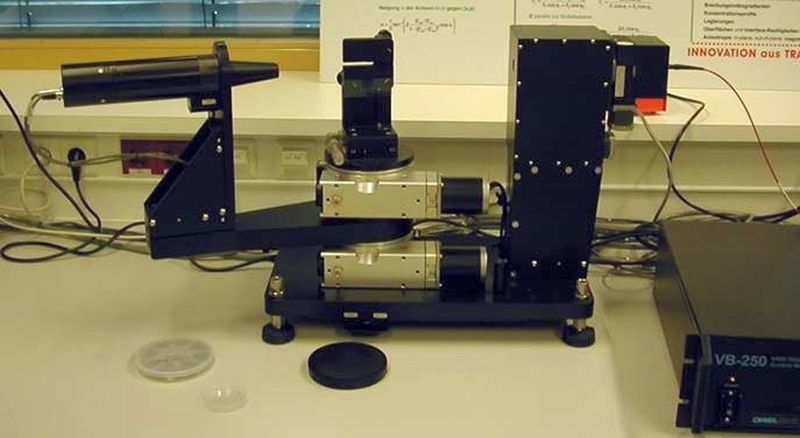Ellipsometer VASE
About
Variable Angle Spectroscopic Ellipsometer from J.A.Woollam Inc. for research on all types of materials: semiconductors, dielectrics, polymers, metals, multi-layers.
Description
Spectroscopic ellipsometry is an optical technique using the relative phase and amplitude changes in polarized light reflected from a surface or a thin film to characterize optical sample properties like refractive index, absorption coefficient and film thickness. The measured data are used to establish a model of the sample containing dispersion relations to describe the sample properties. It combines high accuracy and precision with a wide spectral range – from 240 to 1700nm. Variable wavelength and angle of incidence allow flexible measurement capabilities, including:
- Reflection and Transmission Ellipsometry
- Generalized Ellipsometry (Anisotropy, Retardance, Birefringence)
- Reflectance (R) and Transmittance (T) intensity
- Cross-polarized R/T,
- Depolarization,
- Scatterometry,
- Mueller-matrix
Technical specifications:
Specifications:
Ellipsometer Configuration: RAE with AutoRetarder
Wavelength Range: 240-1700 nm (UV / VIS / NIR)
Number of Wavelengths: User defined before measurement
Angles of Incidence: 15°-90°
Data Acquisition Rate: 0.1 to 3 seconds per wavelength
Max substrate thickness: 20mm
Additional microspot optics for reduction of measurement spot diameter from 3mm to 200µm
Sample maximum dimension ~ 10×10 cm, minimum dimension 1×1 cm
Additional information: https://www.jawoollam.com/products/vase-ellipsometer
Case study:
A user wants to realize a capacitive structure made from a sandwich of PEDOT_PSS – cellulose – PEDOT_PSS. This structure is screen print onto a silicon substrate. To assess the capacitance, the thickness of the dielectric has to be determined. Using variable angle spectroscopic ellipsometry, the thickness of the cellulose layer is determined to be 2.5 µm revealing a permittivity close to 5.
Access Provider / Facilities




